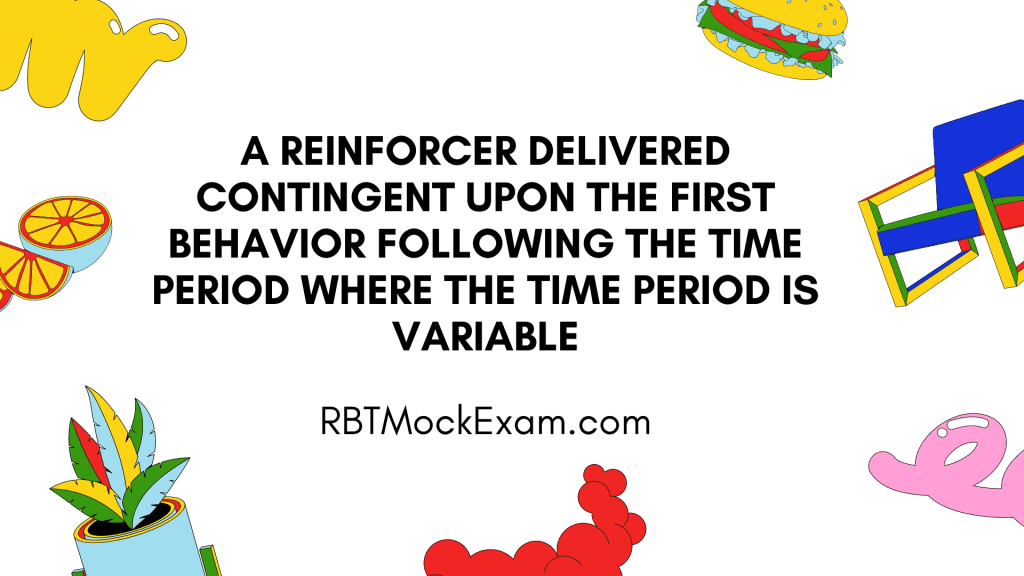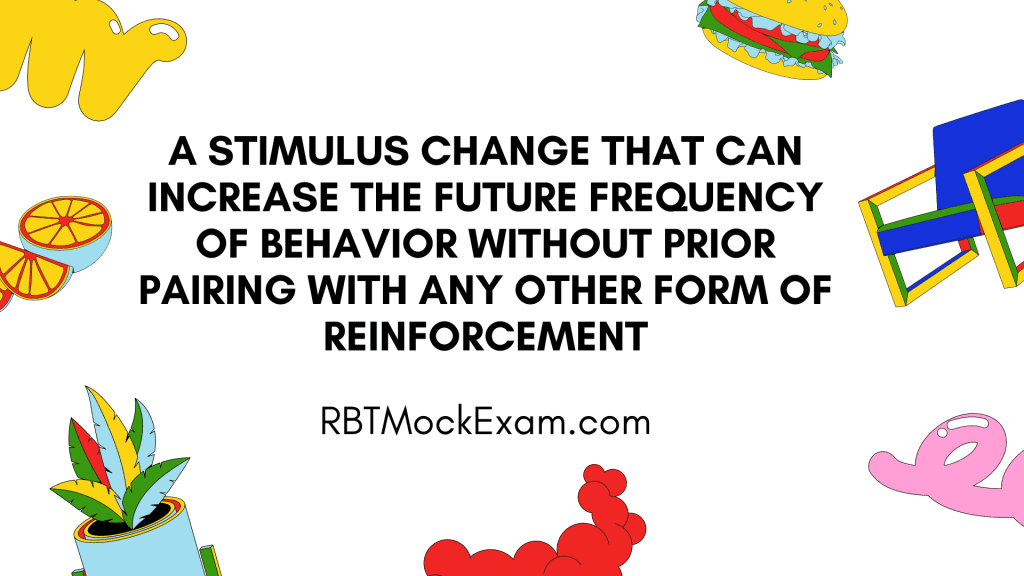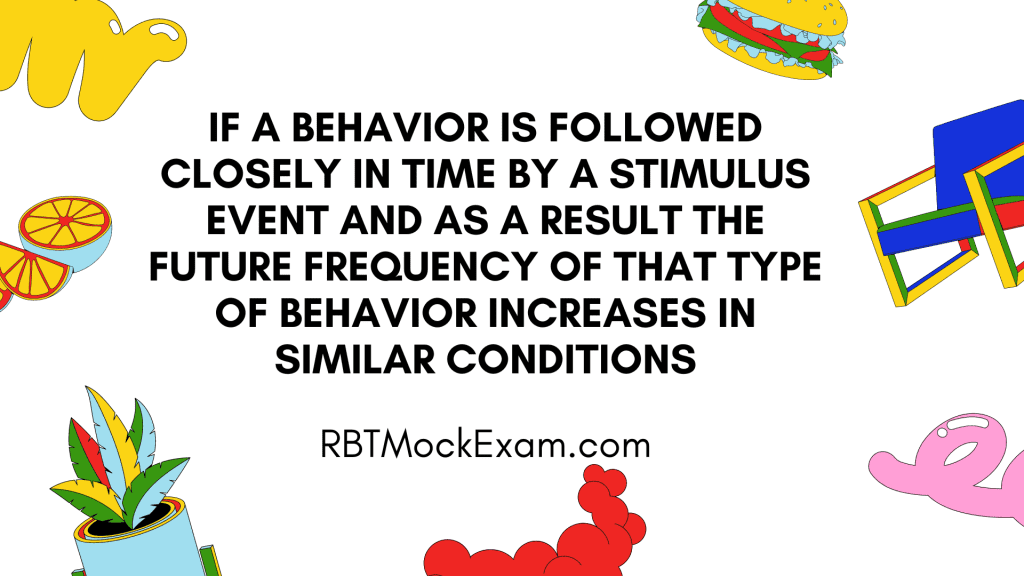Question: RBTs must follow skill acquisition plans exactly (T/F).
Options:
- True
- False
Correct Answer:
- True
Explanation: Registered Behavior Technicians (RBTs) must follow skill acquisition plans exactly as they are written. These plans are designed by Board Certified Behavior Analysts (BCBAs) based on careful assessment and evidence-based practices.
Practice Tests On This Question
Registered Behavior Technicians (RBTs) must follow skill acquisition plans exactly as they are written. This requirement is fundamental to the practice of Applied Behavior Analysis (ABA) and is crucial for several reasons:
- Consistency and Fidelity:
- Adhering strictly to the plan ensures consistency across sessions and between different RBTs who may work with the same client.
- This consistency is vital for maintaining treatment fidelity, which is essential for the effectiveness of ABA interventions.
- Evidence-Based Practice:
- Skill acquisition plans are developed by Board Certified Behavior Analysts (BCBAs) based on comprehensive assessments and evidence-based strategies.
- These plans are tailored to the individual client’s needs, abilities, and goals, making exact implementation crucial.
- Data Integrity:
- Precise adherence to the plan ensures that the data collected during sessions is valid and reliable.
- This data is used to monitor progress, make data-driven decisions, and adjust interventions as needed.
- Ethical Considerations:
- Following plans exactly aligns with the ethical guidelines set forth by the Behavior Analyst Certification Board (BACB).
- It ensures that clients receive the interventions as intended and approved by their supervising BCBA.
- Legal and Professional Responsibility:
- RBTs have a professional and sometimes legal obligation to implement interventions as written.
- Deviating from the plan without authorization could be considered a breach of professional conduct.
- Skill Development:
- Exact implementation allows for accurate assessment of the effectiveness of specific techniques and strategies.
- It helps in identifying which components of the intervention are most beneficial for the client.
- Collaboration and Communication:
- Adhering to the plan facilitates clear communication between RBTs, BCBAs, and other team members.
- It allows for accurate reporting and discussion of the client’s progress and any challenges encountered.
- Quality Control:
- Following plans exactly enables supervisors to maintain quality control and ensure that all clients receive high-quality, standardized interventions.
- Client Safety and Well-being:
- Skill acquisition plans often include important safety considerations and accommodations for the client’s specific needs.
- Deviating from the plan could potentially compromise the client’s safety or comfort.
- Professional Development:
- By following plans exactly, RBTs develop a deep understanding of ABA techniques and their application.
- This practice builds their skills and prepares them for potential future roles with more responsibility.
Adhering strictly to these plans ensures consistency in the delivery of interventions, maximizes the effectiveness of the therapy, and ensures the data collected is valid and reliable. Deviating from the plan can lead to ineffective interventions and hinder the client’s progress.





